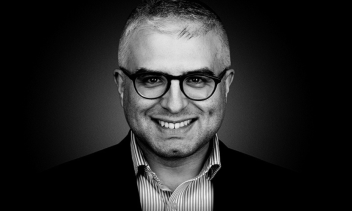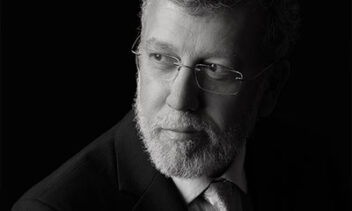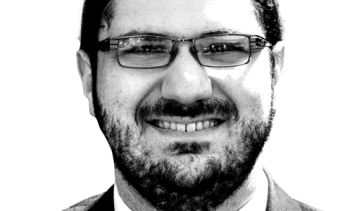This essay is the first in the author’s five-part series for 18Forty’s explorations of the origins of Judaism. The entire series can be found compiled here.
Rabbi Adin Steinsaltz was one of the towering Torah personalities of our times. He was gifted with the ability to explain even the most complicated Jewish concepts in simple terms. But his ideas did not meet with universal approval. In 1990, Rabbi Joseph Elias, a distinguished member of the German Jewish community in Washington Heights, NY, criticized Rabbi Steinsaltz in the pages of The Jewish Observer, the long-running magazine of the Agudath Yisrael of America. The problem? Rabbi Steinsaltz entertained the possibility that the Torah she-Ba’al Peh, or Oral Torah, had evolved over time.
“The inseparable oneness of the Written Law and the Oral Law, given at the same time at Sinai, is the indisputable foundation of Torah Judaism,” Rabbi Elias wrote. “What was given at Sinai,” he continued,
was a complete, specific and binding oral law code, explaining, in full and beyond possibility of misunderstandings, the teachings of the Written Law. In the course of the generations, much was added to this law code: further clarifications, in response to new circumstances, or to misunderstandings that arose, based on the rules of interpretation given at Sinai, and rabbinic elaborations and ordinances (clearly labelled as such). But this is certain—the Oral Law was not a set of vague traditions from ancient times that slowly evolved into the law we know.
The basic contours of Rabbi Elias’ approach are instantly familiar. A bedrock principle of Orthodox Jewish faith is that at Sinai, the Jewish people received not just the Written Torah, but also the oral one (see Sifrei Devarim 351). Many of us are taught this in grade school. The Rambam explains this in the introduction to his Mishneh Torah: Moshe transcribed the entirety of the Written Torah before his death. But God also gave Moshe an explanation for the Written Torah, and that was transmitted orally by Moshe to the seventy elders. The Oral Torah, although ultimately committed to writing in works like the Mishna and Gemara, was transmitted from generation to generation in an unbroken line of tradition.
Of course, the Oral Torah, as manifested in the halacha we follow, is not entirely static. As Rabbi Elias alluded to, new circumstances arise in every generation. There was no electricity before the 20th century, so rabbis had to decide whether it was permitted on Shabbos and Yom Tov.
Yet, one might argue that decision was made by applying eternal principles of law to the new reality. The Oral Torah grows but does not change. As Rabbi Chaim Eisen, an educator in Israel, wrote in a 1997 issue of Jewish Action, the magazine of the Orthodox Union:
The myth that Jewish law “changes with the times,” subject only to “rabbinic will,” is an outrageous fabrication without a shred of credible historical evidence. Of course, we realize that the world changes, and with it, the situations in which Jewish law is applied. Obviously, such circumstances can lead to what superficially appear to be novel and even revolutionary solutions. But any deeper understanding of the actual nature of such solutions belies such facile conclusions. One does not tinker with a legal system whose source one believes is divine. It is essentially the same traditional law, both Mosaic and rabbinic, which is continually applied and reapplied anew (emphasis added).
But not everyone will find this approach satisfactory.
Broadly speaking, people tend to question the notion of a revealed and mostly unchanging Oral Torah for two reasons: (1) the lack of consensus in halacha and (2) historical questions about its transmission and development.
In light of these questions, I’m writing a series of essays exploring what it means when we say that “the Oral Torah comes from Sinai.” I take it as a given that halacha is the revelation of God’s will and a reflection of how God wants us to conduct our lives. But I hope to show that our tradition contains much room to debate how halacha was revealed. The words of Rabbi Elias and Rabbi Eisen are a good place to start, but they are far from everything that has been said on this weighty matter.
Let’s turn to the problems.
I. The Debates of Halacha
Every page of the Mishna and Gemara is littered with machloket, or debate. If nearly everything was given to Moshe at Sinai—and faithfully transmitted—why is there disagreement about nearly every aspect of halacha? And it often seems like the Sages of the Mishna and Gemara don’t have a tradition, but instead create law—even Torah-level law—by creatively reading the text of the Torah, making derashot. Did God grant the rabbis authority to create new laws?
Further, Judaism venerates creativity and robust debate. The printed page of the Gemara is crowded with commentaries vociferously disagreeing with each other, each jockeying for its position on the page. The Rambam intended his Mishneh Torah to be the final word on Jewish law, but it was not to be. Supercommentaries sprang up around the text, dissecting every word. The Shulchan Aruch, the modern code of Jewish law, arguably became accepted only because the Rema and others wrote glosses on it, turning its pages into a lively beit midrash of differing opinions. The Oral Torah we know today is not a static body of law, dutifully transmitted, but a living, wriggling corpus that cannot be contained. Sometimes the revealed portion of the Torah seems drowned out by all that’s been added. In what sense do we understand this expanded Oral Torah as divine or Sinaitic?
II. The History of Halacha
Then there are historical problems. No one in Tanach seems particularly concerned with halacha in general, let alone its details. The first time someone worries about kashrut is Daniel in Nevuchadnezzar’s palace (Daniel 1:8-16), despite the fact that it wasn’t the first time a Jew had found themselves in a foreign place. The prophets complain about people’s non-observance, but somehow, even what the prophets want people to do seems quite different than the halacha of today. The lack of observance in most of Tanach makes one wonder about the idea of an unbroken oral tradition from Sinai. It doesn’t help that modern academic scholars note that there’s no evidence for a robust Oral Law before the Mishna. Some even say that the rabbis invented the idea that the Oral Torah came from Sinai to grant legitimacy to their new enterprise. Simply put, it can be hard to square the authenticity of a divinely revealed halacha with a process of historical development.
These are not easy questions, and they don’t yield simple answers. The solutions weighed in this series may not satisfy everyone, and in fact, they’re not intended to. We certainly won’t be able to cover everything that’s been said on this vast topic. But by giving a taste of some of the major positions and debates over the centuries, I hope to engage the questions seriously, providing food for thought and broadening our intellectual horizons.
We will learn that throughout history, there have been fundamental differences of opinion. After addressing the ambiguities in Chazal’s statements on the matter, we will see that the meaning of Oral Torah from Sinai was debated by the rishonim, or medieval Jewish scholars; was reconsidered in the 19th century as part of the polemics between Orthodox and Reform; and was wholly reimagined by a cadre of more mystically inclined thinkers in the early decades of the 20th century.
I invite you to join me.
Yosef Lindell is a practicing lawyer and one of the editors of the Lehrhaus, living in Silver Spring, MD. He has a JD from NYU Law and an MA in Jewish history from Yeshiva University. Yosef’s published writing spans several genres, from science fiction to Jewish scholarship. His website is yoseflindell.wordpress.com.








